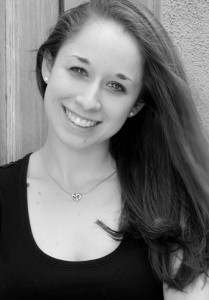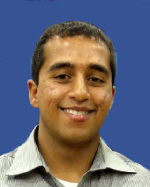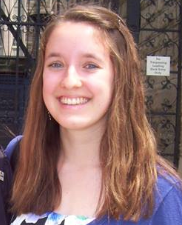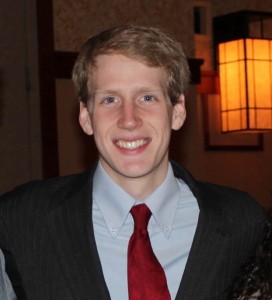Last spring, we asked several current Penn students in the College of Arts & Sciences to talk to us about their summer internship experience.
We hope these brief interviews give you some insight into the many opportunities and career fields that await you out in the world!
Today’s interview is with Mary Xia, CAS ’16
Name: Mary Xia
Hometown: Livingston NJ
Year/major/minor: Class of 2014, Major in Biology, Major in Computer Science, Minor in Nutrition
Favorite class/experience at Penn
Many. There are just so many opportunities to do pretty much anything here. One event (out of many) is being a Move-In Green Leader during move-in. We all recycled 20 tons of cardboard from solely move-in week in August 2013.
Where did you work and what was your job title?
I spent the summer between my Junior and Senior year participating in the Food Science Summer Scholar Program at Cornell University. I worked in a sensory research lab, focusing on how diet-restriction affects mouse taste receptor expression.
How did you get involved in your summer position?
I applied online to food science internships and jobs.
Did you have any background with this subject/field before?
I have been researching human taste receptors and taste perception at the Monell Chemical Senses Center since my second semester at Penn, and I have been interested in food science and nutrition since middle school. There was still a lot of novel material, especially as I was working with mice for the first time and on different pathways and lab techniques. However, food science is a really broad topic, ranging from sensory to food safety (microbiology) to food processing techniques (chemistry, engineering) and more. The scholars and I all had completely different projects across the spectrum, so there was definitely a lot to learn.
What was your favorite part of the experience?
Everything! Cornell’s Food Science department is incredible, and the entire program was extremely well-planned and diverse. I not only picked up how to get taste buds from mice tongues, but also had the chance to tour Kraft’s and Pepsi’s headquarters and learn about the industry. Most of the other scholars came from universities with Food Science programs, and it was fun to explore Ithaca with them. We also had a fantastic trip to Chicago for the annual Institute of Food Technologists Expo, a conference where thousands of food companies and academics gather to discuss food. I don’t think I could’ve asked for a better summer (except for more data/results).
What was something you learned/did that you didn’t expect?
Well, the entire summer was a learning experience, both in and out of the lab, so it’s difficult to just choose one. One nifty procedure I learned was how to obtain taste buds from the mouse tongue. You remove the tongue, peel off the top layer of the back of the tongue in one piece (the underside has the taste buds) and then suck up the taste buds using a little glass tip. This is all done under the microscope because everything is tiny. I also gained an industry perspective on so many topics, especially at the Expo where I talked to at least a hundred different companies about their products, processing techniques, and sustainability initiatives.
What was the most valuable lesson you took away from this experience?
I really enjoyed working with my lab members; everyone was extremely passionate, intelligent, and experienced. At the same time, they were willing and eager to try new techniques, figure out protocols, and read and discuss tons more papers. Scientific research is really frustrating when expensive experiments don’t work, or when results aren’t conclusive, and it really takes a lot of mental strength and passion to pursue this career.
How has this experience influenced your long-term career plans/goals?
I am certain that I like food science and its related topics, and that it will always be an interest/hobby of mine. In the future, I might migrate towards a career in food science or sensory research. For now, though, I will be working in an unrelated field.






